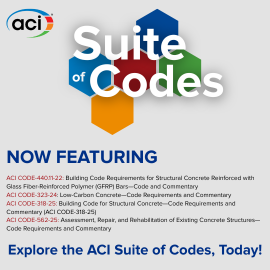
Discover the potential of energy codes
The building sector is the single largest user of energy in the United States, accounting for roughly 40 percent of total energy consumption and costing Americans over $400 billion a year, according to the U.S. Energy Information Administration. There is room for significant savings. Consistent code adoption from 2010 through 2016 represents a national annual energy savings of $1.98 billion. States that don’t adopt up-to-date codes have significant unrealized energy and financial savings.
While energy impacts the built and human environment in numerous ways, energy-efficient construction, water heating and delivery, solar and wind technology, and energy storage each have the potential to contribute to the health, safety and resiliency of our buildings and communities.
A learning opportunity
The 2018 National Energy Codes Conference, hosted by the U.S. Department of Energy (DOE), presents a valuable opportunity to learn about all things energy codes and is applicable to building officials, architects and designers, builders, engineers, manufacturers, policymakers, and anyone working in the field. Scheduled for July 15–18 in Austin, Texas, the event will include a collection of engaging workshops, educational sessions and the latest updates affecting states and localities across the nation.
To encourage increased training and learning opportunities, the International Code Council (ICC) will provide a free energy code class — Simplified 2018 IECC Training Workshop on July 18 — to conference attendees in conjunction with this year’s National Energy Codes Conference. Space is limited and separate registration is required. This simplified course will provide real-world, best practices for effectively integrating the International Energy Conservation Code (IECC) into a local building department’s work flow. Participants will learn where to start with the code and the key items to address, in addition to:
- Best practices for simplified energy code compliance and enforcement
- Effective tools commonly used by local building departments
- A simplified framework for plan review and field verification
- Intake and review forms, as well as a simplified inspection guide
- Preparation for the ICC Residential Energy Inspector certification
The Code Council will also offer scholarships — traditionally provided by the U.S. DOE — to support National Energy Codes Conference attendees. A limited number of scholarships are available and those interested must apply in advance.
Going beyond
To recognize the innovative solutions that have been developed and the ambitions of jurisdictions seeking greater energy efficiency, a roundtable forum to discuss the future of building energy efficiency and management will be offered on July 18 as well, immediately following the National Energy Codes Conference. There is no charge, but registration is required as seating is limited.
The forum will seek to solicit input from, and encourage dialogue between, advocates and leaders on collective goals, including addressing some of the following:
- Where should we want to go as a nation with energy efficiency in buildings?
- What programs or processes are most effective at moving us towards the ultimate goal?
- Is there some level of collaboration in which we should be engaging that currently does not exist?
- What does that collaboration look like?
A diverse audience — jurisdictions with advanced policies in place, utilities, advocates and policy experts, and communities with goals seeking a path forward — will come away from this roundtable with an agreed-upon end state for buildings (where we should be in five, 10 and 15 years); a list of the programs, organizations and people that should be involved in getting us to this end state; and an agreement on a process and near future timeline for moving forward.
We are really looking forward to this engaging and informative roundtable forum and look forward to where this may take us all.
Basics of the energy code
The International Energy Conservation Code helps states and jurisdictions reach energy savings, durability, resiliency and carbon reduction goals. It is designed to meet the needs of code officials for a modern, up-to-date energy conservation code addressing the design of energy-efficient building envelopes and installation of energy-efficient mechanical, lighting and power systems through requirements emphasizing performance. It does this through model code regulations founded on broad-based principles that make possible the use of new materials and new energy-efficient designs.
Building codes can require new construction to perform at more energy efficient and environmentally sensitive levels, ranging from construction design and elements to how buildings are used and occupied. The IECC provides jurisdictions with a solution for making the transition to energy-efficient construction for traditional and high-performance buildings. Fully compatible with the Family of International Codes, this comprehensive energy conservation code establishes minimum regulations for energy-efficient buildings using prescriptive and performance-related provisions and is in use or adopted in 47 states, the District of Columbia, the U.S. Virgin Islands, New York City and Puerto Rico.
A firm foundation
The Code Council has a long history of involvement in the energy field. This year, ICC is expanding its focus on energy use as it impacts the built environment and will engage with a wide variety of industry partners from across the building safety, construction and energy fields to further the conversation about energy efficiency and buildings. The new ICC Energy Program will create a synergy across the ICC Family of Companies and partners, and lead new initiatives to address national needs and pursue new opportunities across the energy spectrum of the built environment.
- In addition to the IECC, ICC publishes a wide range of support products and materials to help users and enforcers of the IECC to improve their knowledge and understanding of the code, including the 2015 IECC and ANSI/ASHRAE/IES Standard 189.1-2013, the 2015 International Solar Energy Provisions, Energy Code Essentials: Based on the 2015 IECC, and the 2015 IECC Code and Commentary.
- The Code Council provides a full suite of training courses geared specifically for the IECC and instructors who provide hands-on, practical problem-solving training through either single or multi-day on-site courses, including 2015 IECC Essentials, 2012 IECC Update, 2012 IECC Significant Changes, 2012 IECC Fundamentals, 2012 IECC Performing Residential Energy Plan Reviews, and 2012 IECC Performing Residential Energy Inspections.
- Specifically designed ICC certification programs to the IECC for inspectors and examiners are available, including certification programs for Residential Energy Inspector, Commercial Energy Inspector, Commercial Energy Inspector with ASHRAE 90.1, Commercial Energy Plans Examiner, Commercial Energy Plans Examiner with ASHRAE 90.1, and Green Building—Residential Examiner.
- ICC Evaluation Service, the United States’ leader in evaluating building products for compliance with code, is recognized by the U.S. Environmental Protection Agency (EPA) to certify roofing products under the EPA ENERGY STAR program, and products under the EPA Seal and Insulate with the ENERGY STAR program.
- The ICC Solar Rating & Certification Corporation is the first certification body accepted into the Global Solar Certification Network which is working to streamline certification of solar thermal products internationally.
- The Alliance for National & Community Resilience announced that it will begin development of the nation’s first whole-community resilience benchmarks for energy.
- The Code Council operates a number of committees and councils specifically related to the development and maintenance of codes and standards that correlate to the IECC, including the Sustainability, Energy and High Performance Building Code Action Committee; the Commercial Energy Code Committee; the Residential Energy Code Committee; the IgCC Energy and Water Code Committee; and the Energy Conservation, Existing Building, Green, Property Maintenance, Zoning Code Interpretation Committee.






